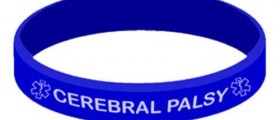
Dyspraxia or developmental dyspraxia is a disorder in movement and coordination caused by imprecise transmission of brain messages. People suffering from dyspraxia have difficulties in making normal and smooth movements, coordinating them and often appear clumsy. They may find some basic everyday activities difficult to follow, e.g. dusting, cooking, and going up and down stairs.
A disturbed balance disables them from riding bicycles or driving a car. Weak muscles do not allow them to stand properly and weak joints make them clumsy, falling down easily. Coordination of the two sides of body is poor so they cannot run properly or jump, participate in team sports when they have to catch and hit the ball at the same time. Their movements are often exaggerated so they clap hands a lot. These people cannot orient themselves and often change directions, fall and trip.
Manipulative tasks are extremely hard for them. They cannot handle both the left and right hand at the same time and are often unable to use forks or knives or cannot get dressed or button up shirts without difficulties. Handwriting and drawings are irregular, more like scribbles because they cannot hold the pen properly, either press it too much or hold it lightly. This is also one of the important symptoms, holding things awkwardly. Anything can fall off their hands so the do not like to manipulate with different utensils and devices. Poor manual dexterity manifests in combing, shaving, doing housework.
Dyspraxia affects the language and talking. People talk with changing tones so from a high-pitched tones turn to lower ones changing the speed of talking. Their speech seem to be uncontrollable, unbalanced with rough sentences and bad pronunciation.
Visual perception and uncoordinated eye movements cause them to miss lines while reading, make them unable to shift their eyesight from one object to another. Lights and noises irritate them and they cannot differentiate between sounds. Tactile senses are overly sensitive so they do not like to touch certain things and be touched.
Skills in finding different directions are poor so they cannot read maps or distinguish east from west. They cannot understand measures for time, distance and other metrical units.
People with dyspraxia have problems with concentration, thinking and learning. They are forgetful, inattentive, showing a lack of ability to concentrate on one thing. They often drift away, their thoughts are unconnected and messy. They have difficulties in memorizing and following instructions as well as copying information. Poor reading comprehension is quite common among them.
They cannot define what is good or bad and tend to over rate and underrate things. Inability to listen carefully, often interrupting or appearing absent-minded unable them to talk to and listen to people for a long time. Usually sensitive and impulsive, they are inclined to be depressed, anxious, fearful even obsessive.
Numerous symptoms of dyspraxia manifest differently with individuals so some of these symptoms may be more or less expressed, but coordination and movement problems are inevitable.

















Your thoughts on this
Loading...